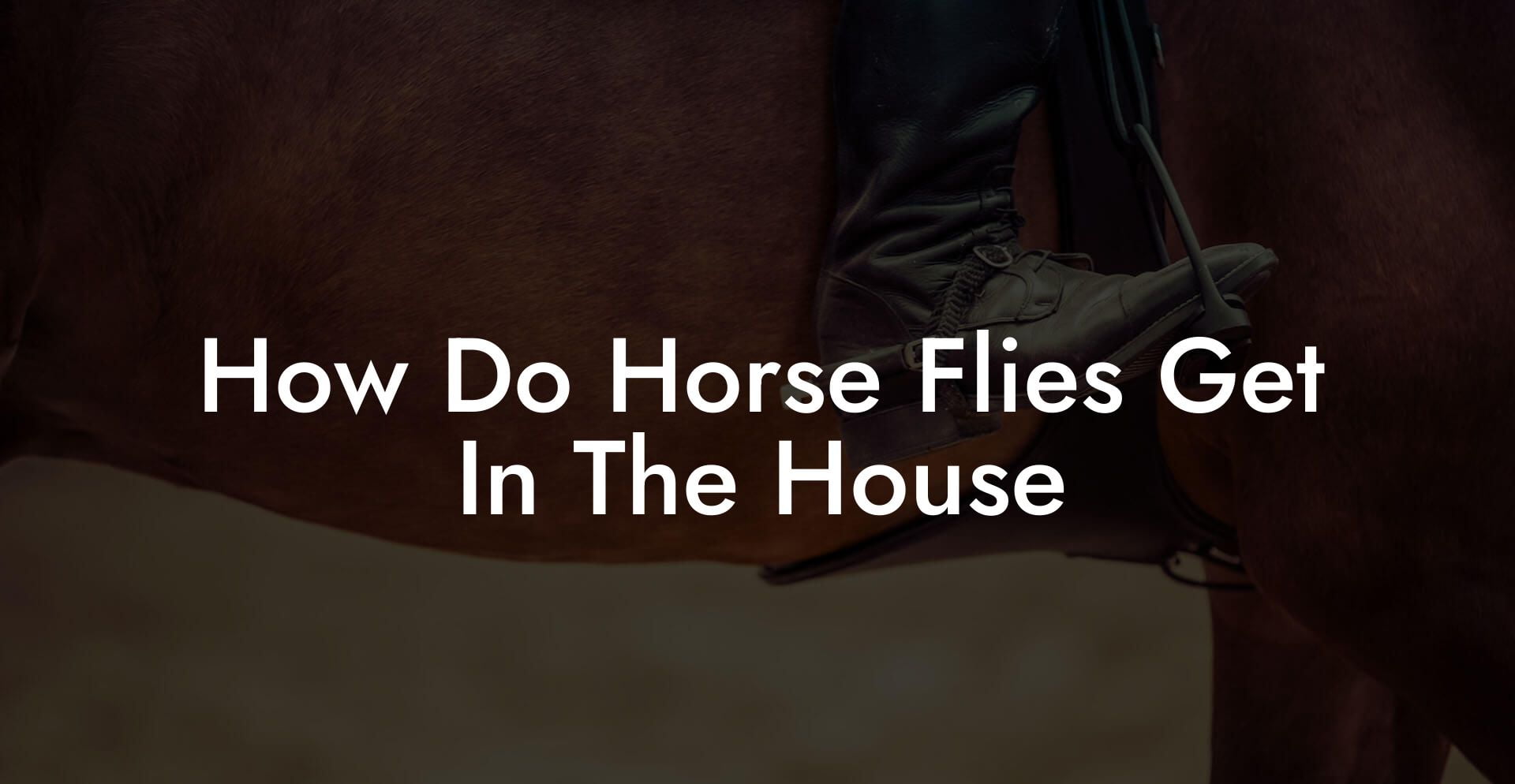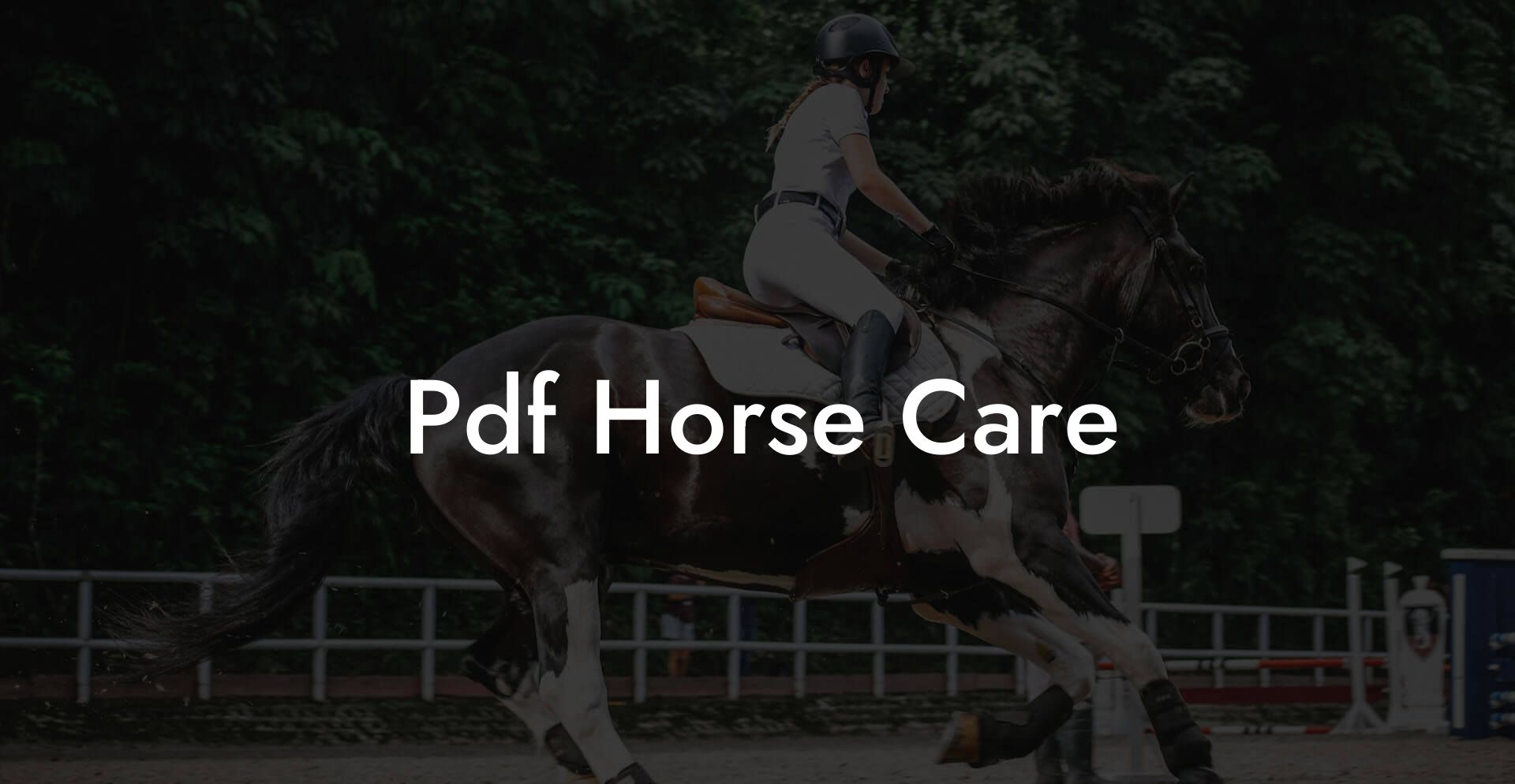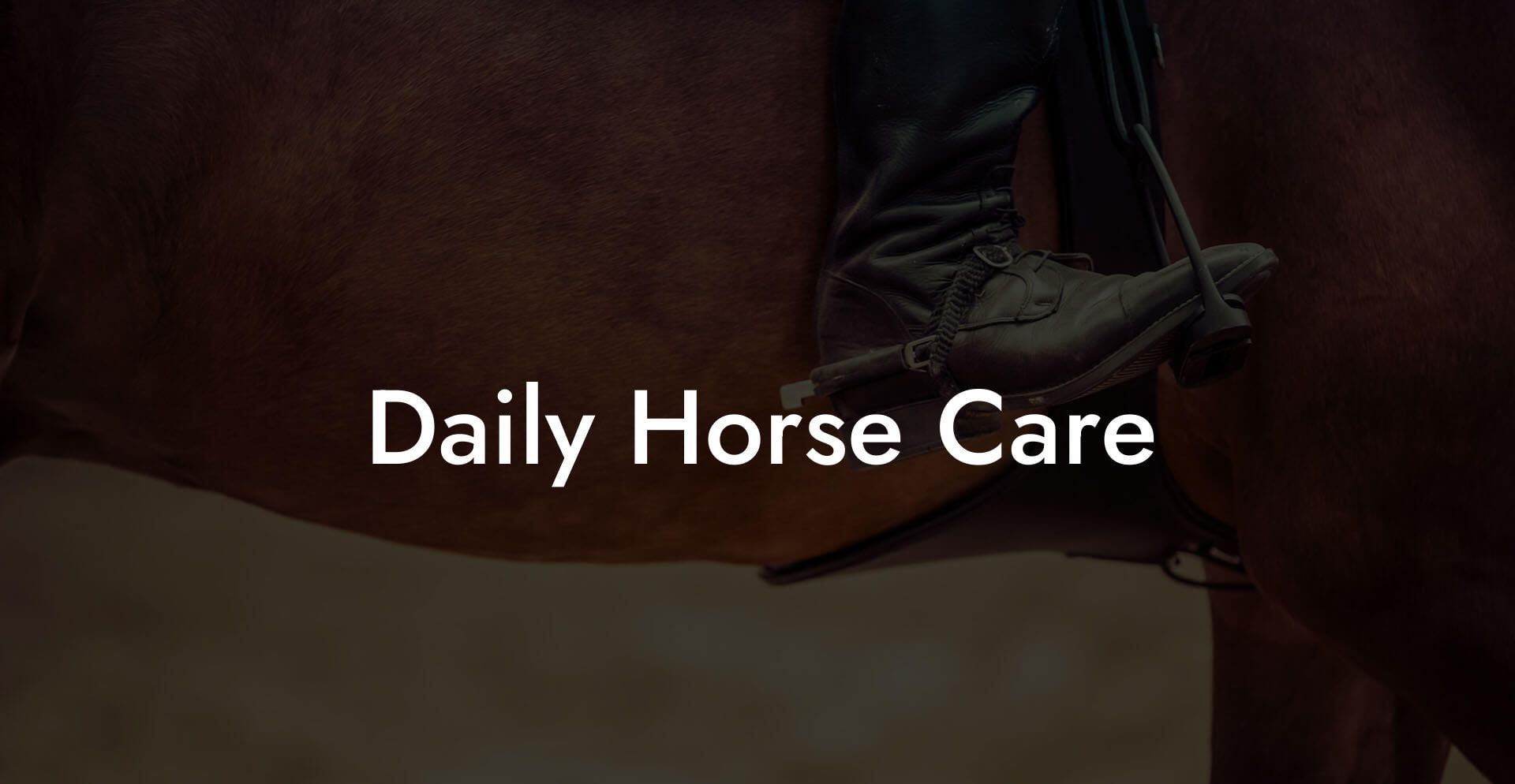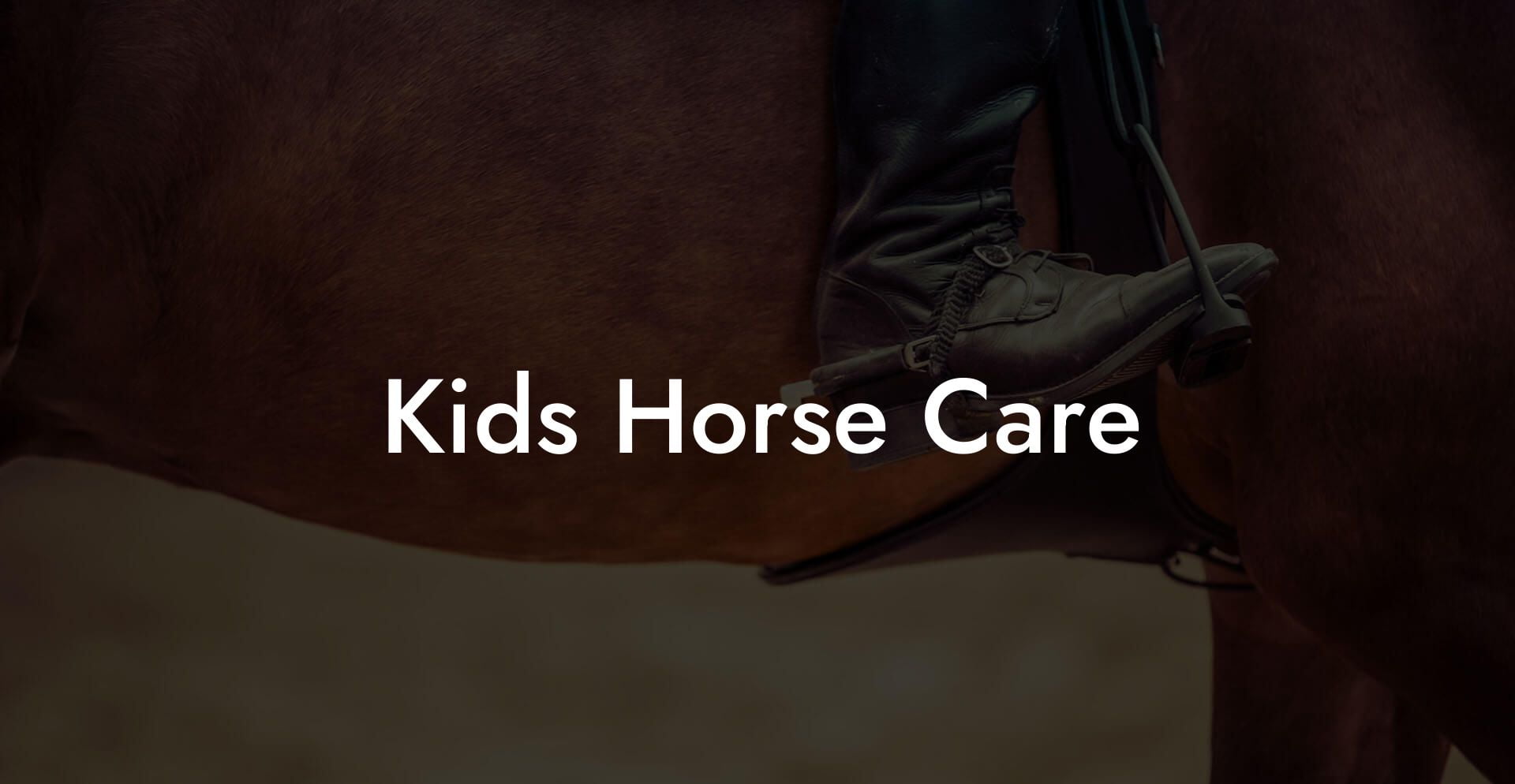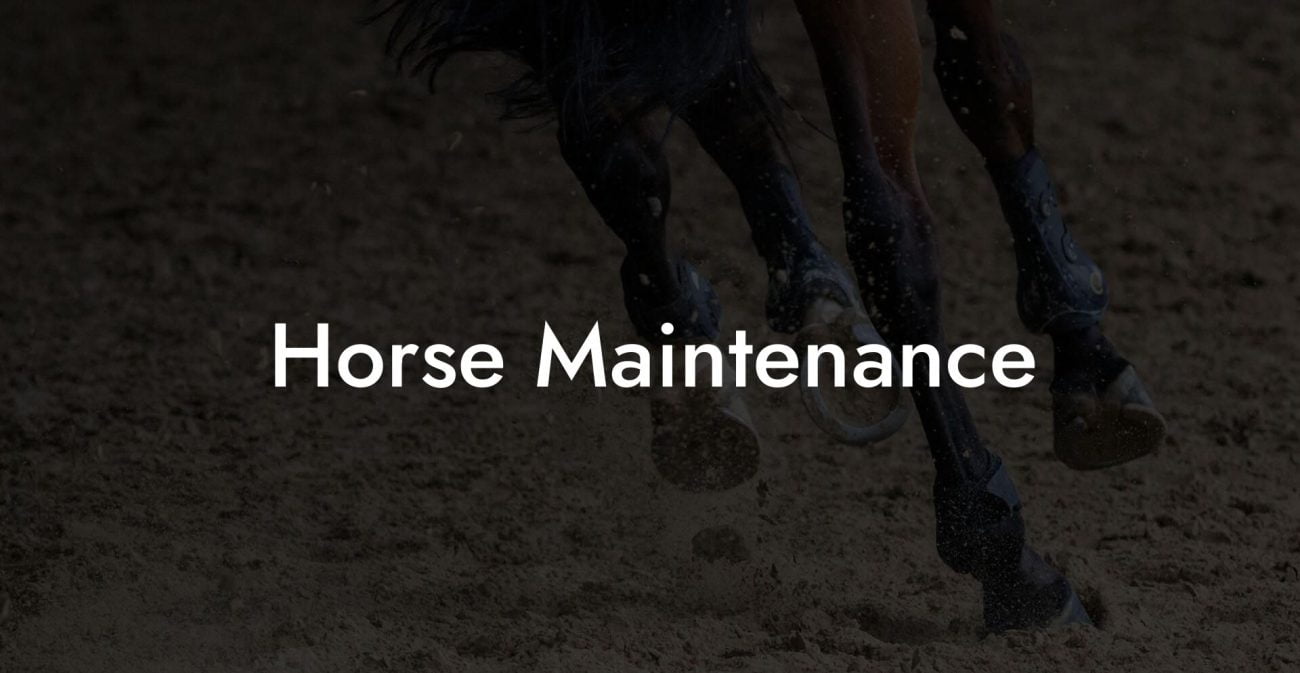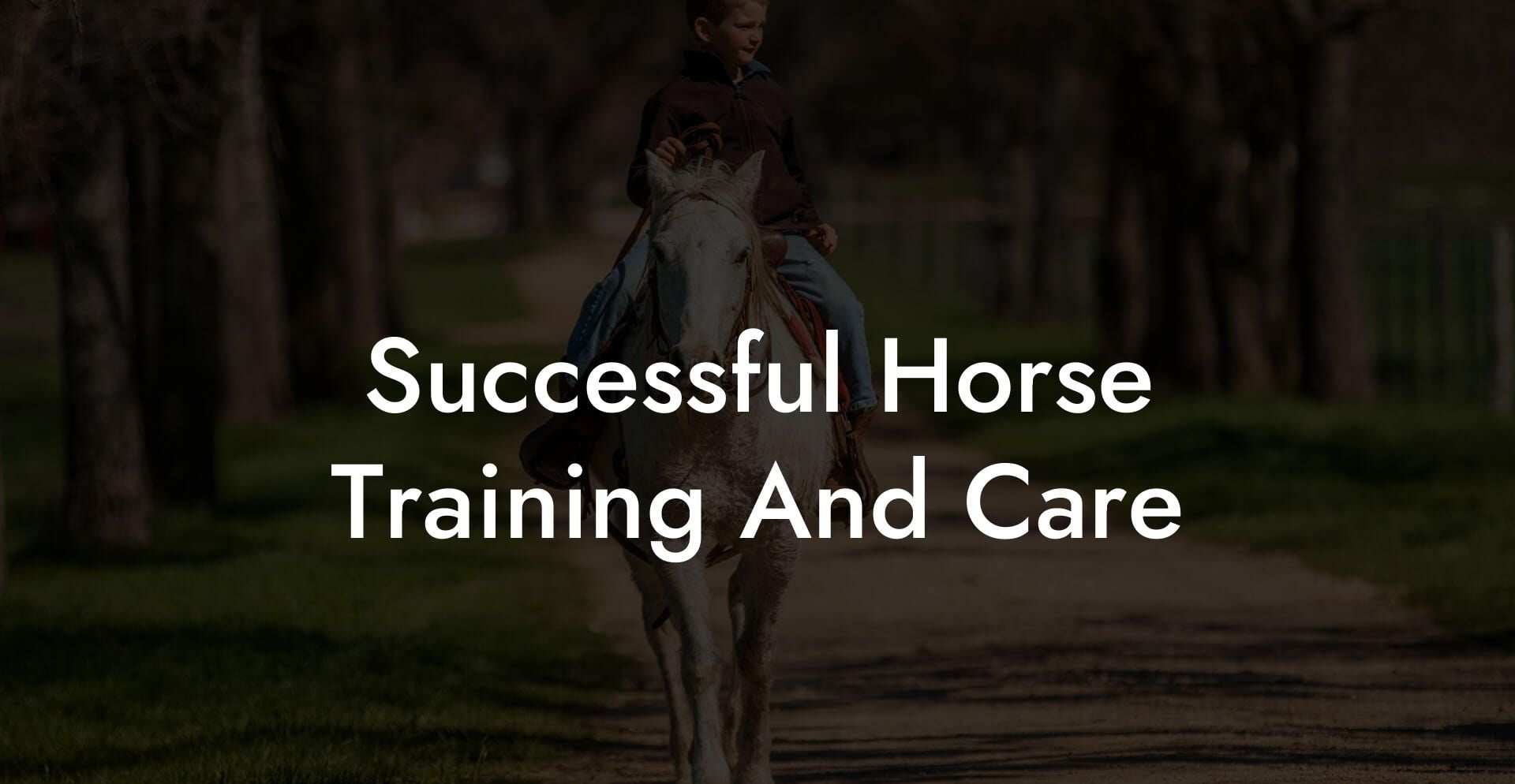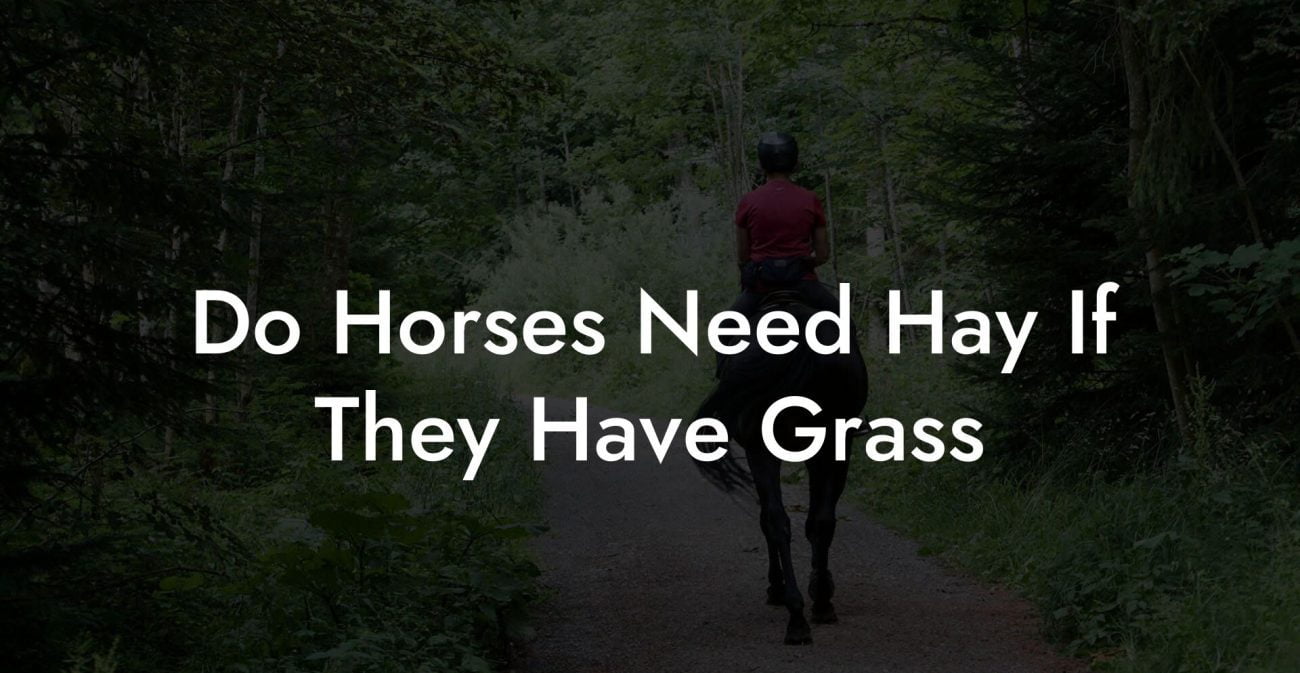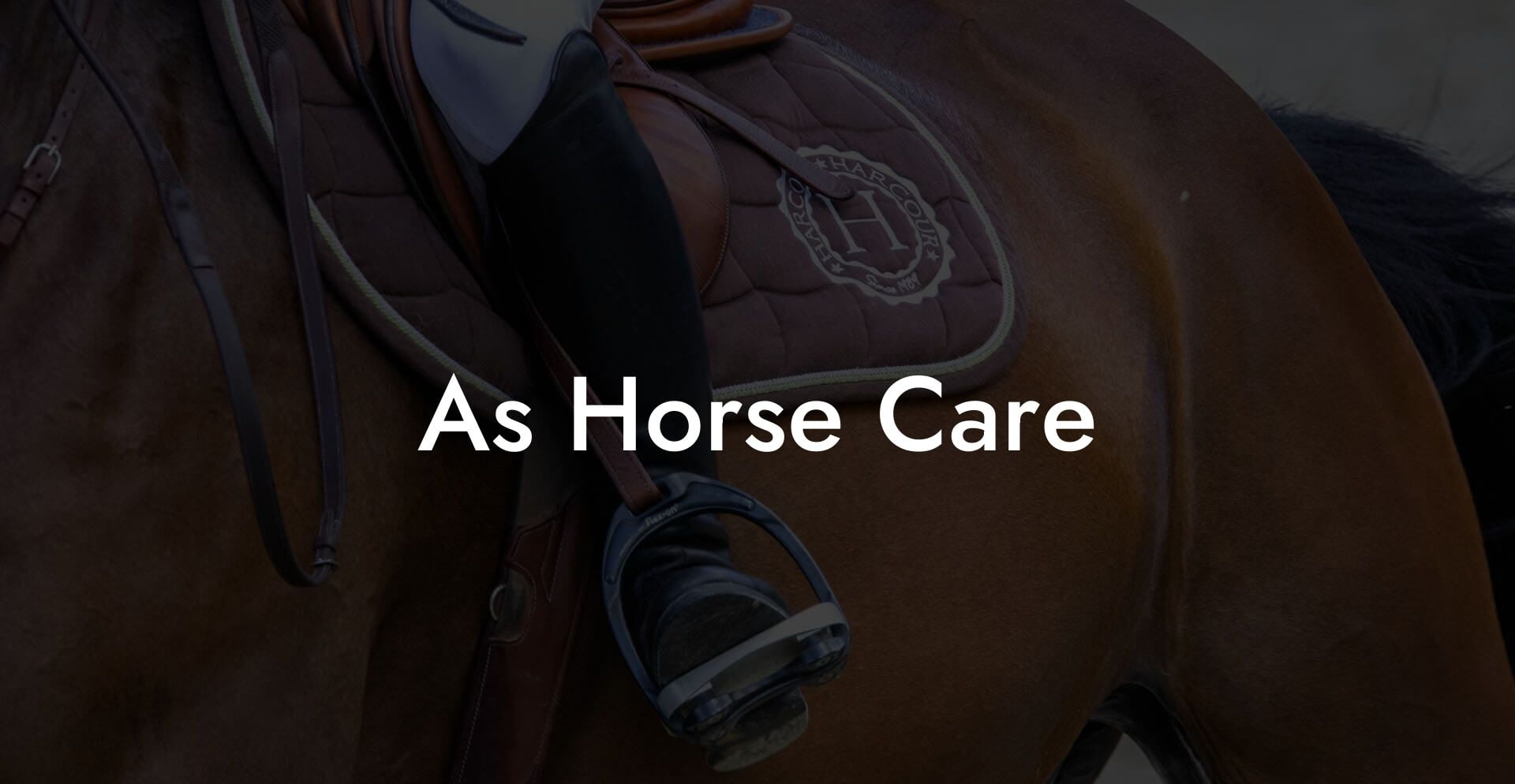Ever wondered why those pesky horse flies seem to have mastered the art of stealth, popping into your home like uninvited guests at a wild party? Whether you're a devoted horse caretaker or just someone who can’t stand the constant buzzing, you might be scratching your head over how these winged warriors sneak inside. Grab your favorite beverage, kick off your shoes, and join us as we unravel the mystery behind horse flies’ secret pathways into your house, sprinkle in some quirky anecdotes, and deliver practical, down-to-earth advice with a Gen-Z twist.
Quick Links to Useful Sections
- Meet the Buzz: Who Are Horse Flies?
- The Intricate Art of Infiltration: How Do Horse Flies Get In The House?
- Cracking the Code: The Biology Behind Horse Fly Entry
- Secret Entry Points: The Unseen Gaps in Your Fortress
- Prevention is Better Than a Pound of Itch: Keeping Horse Flies at Bay
- When Horse Flies Attack: The Impact on Your Equine Friends
- The Science of Attraction: Why Do Horse Flies Flock to Your Home?
- Modern Solutions Meet Old-School Ingenuity: Innovative Fly Control Techniques
- DIY Solutions for the Crafty Homeowner
- 1. The Citrus Spray
- 2. The Herby Barrier
- 3. The Magnetic Screen Fix
- 4. The UV Light Trick
- Resources and Community Support: Your Next Steps
- Case Studies: Real-Life Buzz Battles and Victories
- The Urban Stable Makeover
- Suburban Home Turned Fly-Free Paradise
- The Tiny Farm Triumph
- Future Trends: What’s Next in Horse Fly Control?
- Troubleshooting Tips: Overcoming Common Fly Control Challenges
- Integrating Horse Fly Insights into Your Daily Equine Care Routine
- Frequently Asked Questions About Horse Flies and Home Invasions
- Your Path to a Buzz-Free Haven
Meet the Buzz: Who Are Horse Flies?
Horse flies aren’t your average housefly, they're the rock stars of the biting fly world. Known for their large size, painful bite, and relentless persistence, these insects have earned a reputation that spans from the fields to the backyards of horse stables. Their scientific prowess comes from a family of biting flies called Tabanidae, and while they primarily target large mammals (yep, horses included), they’re equally adept at crashing your chill zone. Imagine a tiny vampire with wings and an attitude, that's a horse fly for you.
Their anatomy is as impressive as their reputation. With huge, compound eyes that can detect even the faintest movement and specialized mouthparts designed to slice through skin, horse flies are built for speed and efficiency. They feast on blood to fuel their high-energy lifestyle, and their method of feeding? Let’s just say it involves more than a simple peck, it's a full-on ambush that leaves their victims both itchy and annoyed.
Despite their aggressive manners, horse flies are an important part of the ecosystem. They play a role in nutrient cycling and even assist in pollination when they feed on nectar. However, when these buzzing bullies decide to invade your space, their ecological contributions are the last thing on your mind.
The Intricate Art of Infiltration: How Do Horse Flies Get In The House?
It turns out that the entry of horse flies into your house isn’t just a matter of chance, it’s a full-blown tactical operation. These tiny ninjas don’t need a secret password to get through your door or a VIP pass for your window; they rely on evolution, chance, and a few good old-fashioned weaknesses in your home’s defenses.
First, let’s break down the classic doors and windows. Most houses have gaps, even if they’re not obvious. A slightly ajar window or a door that doesn’t quite close flush can serve as an open invitation. Horse flies are masters at exploiting these vulnerabilities, buzzing around until they find an easy entry point.
But it doesn’t stop there. Cracks in walls, gaps around utility pipes, and even poorly sealed attic hatches add to the list of potential fly doorways. Some horse flies seem to operate with an uncanny sense of direction, they can detect these small openings from a considerable distance.
And while it might seem like these flies are targeting indoor spaces for a social butterfly moment, the reality is far more strategic. When horse flies sense the scent of food, the presence of light after dusk, or even the vibrations of a settlement (human or equine), they zero in on your living spaces with laser-like precision.
Consider the possibility that your dedicated horse stall or the shed where your equine companion hangs out might be a prime breeding ground for these pests. Flourishing in environments where animals give off the irresistible aromas of sweat and hay, horse flies might first congregate outside before deciding to follow the scent trail indoors.
Cracking the Code: The Biology Behind Horse Fly Entry
If you’ve ever stopped to wonder why some insects are such prolific survivors, the answer lies in their evolutionary design. Horse flies have honed their sensory apparatus over millions of years. Their compound eyes, which might seem like a slug’s worst nightmare, are finely tuned to pick up movement and light contrasts. This biological marvel allows them to detect the slight flicker of an open window from yards away.
Add to that their impressive olfactory system, the ability to smell sweat, carbon dioxide, and other cues, and it’s like they come with their very own built-in GPS to track down their next meal. Even slight changes in temperature or humidity can guide these insects towards your home, where comfort (and convenience) abound.
Moreover, horse flies are not obligate indoor pests; their primary aim is survival. They simply follow the signals their instincts tell them. Indoor environments often offer shelter from the elements and predators, making them an appealing retreat when the weather turns sour. So, when you notice a horse fly buzzing indoors, know that it’s not out to ruin your day out of malice, it’s just following its survival strategy.
The interplay of biology and environment in these flies is a fascinating study. For instance, research suggests that horse flies are more active during certain times of the day (usually the warmer, sunnier parts). This diurnal activity pattern means that those midday moments of laziness might also be prime time for an unexpected visit from these buzzing daredevils.
In essence, understanding the biology behind horse fly behavior is your first step toward reclaiming your space. Once you know how and why these critters choose your home, you can better fortify your defenses.
Secret Entry Points: The Unseen Gaps in Your Fortress
Let’s face it: Your home isn’t a castle with impenetrable walls (unless you’ve invested in that medieval-style drawbridge, in which case, kudos). Instead, think of it as a cozy, albeit occasionally leaky, shelter with plenty of nooks and crannies where horse flies can sneak in unnoticed.
Magnetic door seals, old weather stripping, and even window screens that are more decorative than functional can all contribute to your fly invasion problem. It’s surprising how something as trivial as a loose screen with tiny holes can serve as the Trojan horse in a battle against insects.
One common entry point is your front or back door. Sometimes, these doors might not close completely due to an uneven floor or misaligned door frames. Horse flies, always on the lookout for that minuscule gap, will happily dart through before you even have a chance to notice.
Another sneaky entry is through vents and chimneys. While these structures are essential for maintaining airflow and comfort inside your home, they can also act as fly highways during certain times of the day. Even the space behind furniture or under the eaves can serve as a launching pad for an uninvited fly invasion.
Don’t forget that an open window during your favorite Netflix binge session might just be the final welcoming mat for these winged interlopers. Horse flies don’t require formal invitations, they’re opportunistic creatures, and when your living room looks inviting, they’ll make themselves at home.
In summary, the next time that pesky horse fly buzzes by your ear during a quiet moment, take a closer look around. The answer might just lie in the unnoticed details of your home’s construction.
Prevention is Better Than a Pound of Itch: Keeping Horse Flies at Bay
Now that you’re clued in on how horse flies manage to infiltrate your sanctuary, it’s time to talk strategy. The fight against these buzzing intruders begins with prevention. In the battle of man versus fly, foresight can be your ultimate weapon.
First off, inspect your home like you’re prepping for a very exclusive VIP event. Do a thorough check for any gaps or cracks around windows, doors, and any other potential entry points. Seal them up with weather stripping, caulk, or even a bit of good old-fashioned duct tape if you’re in a pinch. It might sound like basic repair work, but those little fixes can shut the door on an array of unwanted guests.
Another key strategy is to install or repair window screens. Modern, high-quality screens designed to keep insects out can be a game changer. Not only do they allow for that cool breeze during summer nights, but they also act as a firm line of defense against horse flies. And if you’ve got a screen door that’s seen better days, it might be time for an upgrade.
Lighting plays a crucial role, too. Did you know that certain types of lighting can attract insects? Consider replacing standard bulbs with LED lights, which have less ultraviolet emission. Horse flies are drawn to UV light, so a simple switch might reduce their allure.
For those who appreciate a natural approach, several plant-based repellents can help. Consider cultivating a mini herb garden with basil, lavender, and mint near entryways. These aromatic plants not only add a fresh vibe to your surroundings but also deter flying pests with their potent scents.
Don’t underestimate high-tech solutions either. Ultrasonic pest repellers, while met with mixed reviews, have their loyal fan base in the millennial DIY community. These gadgets emit sounds that are supposed to wrinkle the flies into submission, though, as with any gadget, your mileage may vary.
And finally, consider adopting a routine home maintenance checklist during peak fly season. Regular cleaning, vacuuming, and checking for leaks or spills can reduce the overall attractants around your living space. After all, every little step counts when you’re guarding your territory against these stealthy invaders.
When Horse Flies Attack: The Impact on Your Equine Friends
Anyone who cares for horses understands that these majestic creatures aren’t just animals, they’re family. And while you might think that a house infiltrated by horse flies is a human-only dilemma, the impact on our equine pals is profound. Horse flies are notorious for leaving a trail of irritation, inflammation, and sheer annoyance in their wake.
A horse bitten by a horse fly might experience significant discomfort, from skin irritation to swollen, painful welts. The irritation isn’t just a surface-level nuisance, it can lead to infections, stressed animals, and even affect your horse’s overall health. After a long day of grazing and enjoying the outdoors, the last thing your horse needs is an attack from a relentless winged foe.
Moreover, a horse in distress might become agitated, affecting not only its own well-being but also the harmony of the herd. In competitive riding or when managing a stable, calm, comfortable horses are a must. Yet, a few dozen horse flies landing on your prized stallion can quickly shift the mood from zen to chaotic.
As a horse owner, it’s crucial to be proactive. Regularly inspect both your horse’s housing and grazing areas for signs of fly infestations. Consider fly repellent sprays, physical barriers like fly masks, or natural remedies recommended by your vet. Establishing a coordinated fly management plan not only protects your four-legged friends but also safeguards the overall atmosphere of your homestead.
In short, when horse flies decide to join the party, nobody wins, not you, not your horse, and certainly not the quiet, relaxing moments you were hoping for.
The Science of Attraction: Why Do Horse Flies Flock to Your Home?
It might be easy to chalk up horse fly invasions to mere coincidence, but there’s a whole science of attraction at work behind their buzzing noses. Several factors come into play that turn your home into an irresistible beacon:
- Light & Heat: Most horse flies are diurnal creatures that enjoy basking in the sun. Bright outdoor lights and even indoor lighting during dusk can mimic the visual cues of a warm, inviting environment.
- Carbon Dioxide: Just like many other biting insects, horse flies are drawn to the carbon dioxide we naturally exhale. In a closed indoor space, your breath becomes an inadvertent homing beacon.
- Scent and Sweat: When it comes to odors, horse flies have a keen sense. The smell of sweat, body odors, or even the scent of your horse after a long day in the field can spark curiosity and hunger in these insects.
- Moisture and Humidity: Damp environments, whether caused by leaky pipes or high humidity, create a perfect ambiance for these flies to thrive.
Understanding these factors not only explains why horse flies target your home, but also empowers you to counteract their attractions. Turning down bright lights, improving ventilation, and even planting natural repellents can be part of an overall pest management strategy that appeals to your inner DIY enthusiast.
In the grand showdown of nature versus nurture, it pays off to know what makes your winged adversaries tick. Recognizing these triggers is the first step toward reclaiming your indoor space from these uninvited guests.
Modern Solutions Meet Old-School Ingenuity: Innovative Fly Control Techniques
While we’ve covered traditional methods like sealing gaps and using repellents, it’s time to explore some modern and innovative techniques that might just tilt the scales in your favor. The good news is that you don’t have to be a mad scientist to experiment with a few creative strategies.
For starters, consider the power of smart home technology. With the rise of home automation, you can now integrate motion-detecting lights or sensors that alert you to movement near potential entry points. These systems can be set to activate a burst of ultrasonic sound or adjust indoor lighting patterns in real time, keeping horse flies guessing and hesitant to approach.
Another cool trick is leveraging eco-friendly pest control products. There are a number of natural fly traps available in the market today that use biodegradable attractants and are safe for both your family and horses. These traps often use a combination of sugar water, vinegar, and sometimes even a dash of essential oils to lure in the flies before trapping them. The best part? They’re esthetically pleasing and won’t detract from the overall vibe of your space.
And let’s not forget the effectiveness of regular maintenance using modern materials. New window screens made from ultra-fine mesh can block even the smallest of invaders, all while permitting optimal airflow. Combine that with periodic inspections using a thermal camera or moisture meter, and you have a tech-enhanced approach that suits the digital-savvy millennial mindset.
The bottom line is that innovation and nature aren’t mutually exclusive. By blending modern technology with time-tested methods of prevention and control, you can create a multi-layered defense that keeps your home fly-free and your horses happy.
DIY Solutions for the Crafty Homeowner
For the Gen-Z and millennial DIY aficionado, there's something deeply satisfying about taking matters into your own hands. If you're itching to roll up your sleeves and craft some fly-fighting solutions at home, you’re in for a treat. Here are a few crafty, budget-friendly hacks to keep those horse flies from making your pad their new hangout:
1. The Citrus Spray
It might sound like a scene from a quirky kitchen experiment, but citrus is a natural fly repellent. Mix water, lemon or orange essential oil, and a splash of vinegar in a spray bottle, then spritz around doorways and windows. Not only will the aroma keep horse flies at bay, but it will also leave your home smelling fresh.
2. The Herby Barrier
Take a page out of nature’s playbook by planting herbs like basil, lavender, and mint near your entry points. These aromatics work double duty, they add a pop of green to your decor while naturally deterring those buzzing nuisances.
3. The Magnetic Screen Fix
Forget expensive repairs, a quick fix for loose screens is a DIY magnetic screen kit. These kits are easy to install and create a temporary barrier that adjusts to your needs, ensuring that even the teenager in you can become a fly-control expert.
4. The UV Light Trick
Experiment with LED bulbs or UV lights around areas where you frequently encounter flies. As mentioned earlier, horse flies are attracted to UV light, but with the right setup, you can channel them into traps rather than inside your living space.
These DIY solutions not only offer immediate relief but also empower you, the modern homeowner, to take control of your environment using creativity, technology, and a dash of old-school ingenuity.
Resources and Community Support: Your Next Steps
Beyond these practical tips, remember that you’re not alone in this buzzing battle. Whether you're a horse caretaker navigating fly problems around the stable or a homeowner just tired of the constant flutter, there are countless resources and communities ready to help.
Online forums, social media groups, and even local agricultural extensions can offer invaluable insights, reviews of the latest products, and troubleshooting advice. Platforms like Reddit and Facebook host communities where fellow horse enthusiasts and homeowners share their real-life experiences, DIY projects, and product recommendations.
Additionally, consider reaching out to professional pest control services that specialize in eco-friendly methods. Many companies now offer customized solutions for equestrian facilities and residential properties, ensuring that both your home and your beloved horses remain safe and comfortable.
If you’re looking to connect with likeminded individuals, check out websites and blogs dedicated to sustainable living, homesteading, and even veterinary care. These platforms can serve as a treasure trove of advice, from setting up a natural fly trap in your barn to the best practices for maintaining screens and sealing entry points in your house.
As you embark on the journey to reclaim your indoor space and provide a fly-free haven for your horse and family, remember that every small step matters. By staying informed, joining supportive communities, and applying the techniques outlined here, you’re well on your way to becoming a fly-fighting connoisseur.
Case Studies: Real-Life Buzz Battles and Victories
Sometimes, the best way to learn is through stories. Let’s take a look at a few real-life scenarios where innovative fly control methods turned a potential infestation into a distant memory.
The Urban Stable Makeover
Sarah, a millennial horse enthusiast living on the city’s outskirts, noticed that her stable was being overrun by horse flies every summer. Determined to protect her beloved mare, she started by sealing up every nook and cranny around the stable doors and windows. With a mix of high-quality screens and some DIY citrus sprays, she transformed her stable into a fortress. Not only did the fly population dramatically decrease, but her horse also seemed noticeably more relaxed. Sarah’s story is a testament to how a blend of modern technology and homemade remedies can lead to a peaceful animal haven.
Suburban Home Turned Fly-Free Paradise
Mark and Jenna, recent suburban transplants and new horse owners, found themselves grappling with uninvited horse flies in their cozy home. With a combination of professional pest control and DIY fixes like herby barriers around doorways and upgraded LED lighting, they created a customized fly defense strategy. Their battle wasn’t just about pest control, it was about transforming their living space into a sanctuary for both family and equine companion. Their success has inspired many in their online community, sparking a wave of fly-prevention hacks shared across social media.
The Tiny Farm Triumph
On a small farm in the countryside, a group of young horse caretakers decided to tackle the persistent horse fly problem once and for all. They collaborated on a project that combined state-of-the-art ultrasonic repellents with natural remedies sourced from their own vegetable garden. Through regular community workshops and online documentation, they not only successfully minimized the fly problem but also created a replicable model for sustainable pest control. Their initiative highlights the power of community support and innovative thinking in battling nature’s persistent challenges.
These case studies, full of practical insights and relatable experiences, reveal that even the most troublesome horse fly invasions can be managed with the right blend of creativity, technology, and community support.
Future Trends: What’s Next in Horse Fly Control?
As technology evolves and our understanding of insect behavior deepens, the future of horse fly control looks promising. Researchers are innovating ways to disrupt the sensory cues that horse flies rely on, from advanced lure-and-kill systems to environmentally friendly chemical alternatives that target their nervous systems without harming beneficial wildlife.
Expect to see smart home integrations that automatically adjust lighting or deploy micro-drones repelling flies from designated zones. The fusion of IoT (Internet of Things) with pest control might soon allow homes and stables to communicate in real-time with remote monitoring systems, alerting you instantly to any breaches in your defenses.
Moreover, the growing emphasis on sustainability and eco-friendliness means that future solutions will likely favor natural repellents and biodegradable materials over harsh chemicals. This not only ensures the safety of your horses and family but also aligns with a conscious, green lifestyle that appeals to today’s environmentally aware millennial and Gen-Z audiences.
Keeping an eye on these trends and staying updated through industry blogs, agricultural research papers, and community forums will empower you to adopt new strategies as they become available.
Troubleshooting Tips: Overcoming Common Fly Control Challenges
Even with the best-laid plans, hiccups in fly management are bound to occur. Here’s a handy checklist to help you troubleshoot and stay one step ahead:
- Persistent Gaps: Revisit and reseal any structural vulnerabilities in your home. Even a small crack can be a golden ticket for a determined horse fly.
- Ineffective Screens: Inspect your window and door screens regularly. Replace or repair any that show signs of wear and tear for optimal protection.
- Attraction Factors: Evaluate if there are any unexpected sources of attraction, be it lingering food smells, excessive moisture, or even specific lighting conditions.
- Community Insight: Reach out to local pest control experts or online groups to see if there are seasonal trends or unexpected fly behaviors in your area.
- DIY Experimentation: Test and refine your DIY repellents, sometimes a tweak in essential oil ratios or spray frequency can make all the difference.
With proactive troubleshooting, you can adapt your fly control methods in real time and prevent minor issues from escalating into major infestations.
Integrating Horse Fly Insights into Your Daily Equine Care Routine
As someone who cares for horses, your day-to-day routine probably already includes a mix of innovative problem-solving and detailed attention to the environment. Integrating horse fly control into this mix can be seamless and even enjoyable. Here are some ways to bring fly management into your routine without it feeling like a chore:
Morning Checks: Incorporate a quick inspection of your stable or barn before starting the day. Look for any loose screens, open windows, or entry points where flies might be lurking. This daily ritual not only keeps potential infestations at bay but also sets a positive tone for proactive care.
Dining and Entertainment Zones: If you host friends or enjoy outdoor meals with your horses in sight, designate specific no-fly zones by using portable fans or citronella candles. These small measures can help you enjoy quality time with your companions without the disruptive buzz.
Seasonal Adjustments: As the weather changes, so do the behaviors of horse flies. Adjust your preventive measures accordingly. Warmer months might call for more rigorous checks and additional repellents, while cooler periods may allow you to relax just a bit.
Community Workshops: Engage with your local equine community. Share tips, tricks, and successful strategies for fly control. Often, the best ideas come from folks who’ve been in the trenches, and riding alongside the horses, fighting the same tiny adversaries.
By incorporating these practices into your daily routine, you ensure that fly management becomes as natural as feeding your horse or cleaning the stable. It transforms from an occasional hassle into a well-integrated part of your equine care regimen.
Frequently Asked Questions About Horse Flies and Home Invasions
Below are some of the most commonly asked questions about horse flies invading your home, along with answers that draw on both scientific insights and practical experience.
1. Why do horse flies seem to prefer my house over other spaces?
Horse flies are opportunistic feeders. They’re drawn to environments that provide shelter, warmth, and, most importantly, the scent of potential hosts, be it from humans or animals. Even subtle gaps in your home’s construction can make your space an appealing temporary refuge.
2. What are the most common entry points for horse flies?
The most common entry points include open doors and windows, gaps in poorly installed screens, cracks around pipes and vents, or even unsealed areas in the attic or basement. Essentially, any small opening can serve as a welcome mat for these insects.
3. How can I prevent horse flies from entering while still enjoying fresh air?
Invest in high-quality screens, seal any gaps, and consider using natural repellents near entry points. Additionally, modern solutions like smart lighting can help mitigate fly attractions without compromising on ventilation.
4. Do horse flies actually affect horses’ health?
Yes, horse flies can cause significant irritation, stress, and in some cases, lead to infections in horses. Their bites are not only painful but can also be a source of disease transmission. Implementing fly control measures in stables is crucial for maintaining your horse’s well-being.
5. Are there eco-friendly products available to repel horse flies?
Absolutely. Many natural fly repellents use essential oils like citronella, eucalyptus, and lavender. There are also biodegradable fly traps and non-toxic repellents that are safe for both humans and animals.
6. How do weather conditions impact horse fly behavior?
Warmer and more humid weather typically increases horse fly activity. Spring through early fall are peak seasons when these insects are most active, so additional preventive measures during these times can be especially beneficial.
7. Can I use ultrasonic devices to keep horse flies away?
While some people swear by ultrasonic repellents, their effectiveness can vary. They might work best as a supplemental measure rather than a standalone solution.
8. Is professional pest control necessary for fly infestations?
If you’re dealing with a persistent and widespread infestation, consulting a professional pest control service, preferably one that offers eco-friendly options, could be a wise investment.
9. How often should I inspect my home for potential fly entry points?
Regular maintenance is key. A quick inspection every few weeks, especially during peak fly seasons, will help identify and address vulnerabilities before they become a serious issue.
10. What home maintenance practices can indirectly reduce fly attraction?
Keeping your home clean, promptly addressing any moisture issues, and ensuring proper ventilation can all contribute to a less inviting atmosphere for horse flies.
Your Path to a Buzz-Free Haven
The battle against horse flies is as much a journey of understanding as it is of action. With a blend of modern innovation, handy DIY fixes, and proactive home maintenance, you’re fully equipped to transform your space into a fortress against these buzzing intruders.
Remember, every door sealed and every screen fixed is a victory for both you and your equine companions. Embrace the challenge with a playful spirit, armed with knowledge and a refusal to let these winged warriors disrupt your daily peace. Whether it’s enjoying quiet moments at home or caring for your beloved horse, your newfound expertise in fly defense not only protects your space but also empowers you to tackle nature’s surprises head-on.
So go ahead, inspect those creaks, replace those screens, and let the world know that you’re not about to let a few determined flies steal your thunder. Your journey towards a buzz-free haven starts with a single, informed step, and every strategy you implement brings you closer to reclaiming your space with confidence and style.
Here’s to a home filled with laughter, comfort, and the satisfaction of knowing that you’ve turned your sanctuary into a place where both you and your horse can thrive, fly free.

